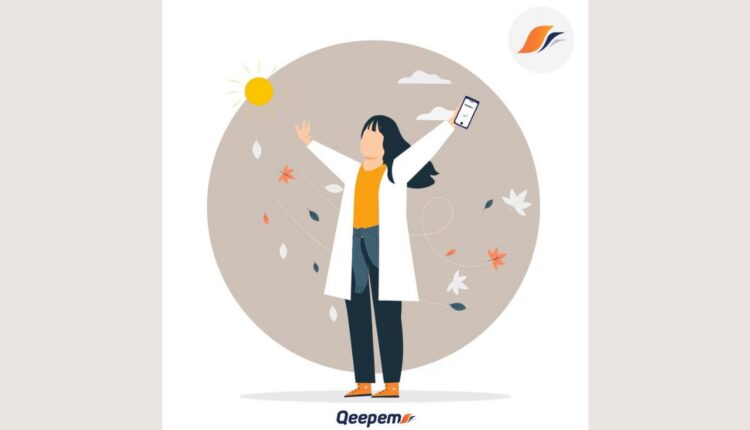While this year’s tax season has already come and gone, it has been a unique one compared to those in recent memory between paycheck protection program (PPP) loans, filing deadlines extended a month past their traditional submission date, and a plethora of COVID-19 grants that have been made available to businesses and businesses owners (including self-employed individuals). Each of these additional features, though helpful (if not necessary) to millions of businesses and business owners, means a higher-than-normal amount of paperwork and receipts that need to be sorted, stored, and tracked for years to come.
Keeping track of financial documents such as tax returns, invoices, and receipts can be a hassle, especially for self-employed individuals and small business owners who often have to store physical copies of their forms and receipts for 3-5+ years. Though utilizing the aid of financial professionals can help in these cases, that aid is often more expensive than many small businesses can afford, and tends to only be made further complicated by a general lack of financial education or tools that could improve the process of filing and tracking financial documents.
Streamlining Financial SaaS With AI
The past decade has seen an exponential growth in the amount of artificial intelligence (AI) and machine learning tools being made more widely available and accessible to a larger number of businesses and individuals. Though talks of AI or machine learning can sound intimidating to those who are less familiar with the ways in which they operate and impact user data, one SaaS company seeks to utilize AI as a method to streamline the hectic and time-consuming process that often comes with filing and tracking financial documents and receipts.
As a former consultant, Saeed Gharnagh realized that he and his team were always working extra hours simply to keep track of their business expenses. Noticing that the generally inaccurate and expensive tools available to him only kept track of his financial records insofar as storing them as image files – but with no data to offer context – Saeed went on a mission to bridge the gap between tracking financial documents and AI.
“We were frustrated and disappointed that we were not able to find an easily available tool to help us,” he said earlier this year in an interview with Authority Magazine, “[which] made us realize that the whole receipt lifecycle could be revolutionized. We started to research receipt capture tools and how AI can help retrieve data in a meaningful manner. We also realized that paper receipts are very hard to maintain, as they can take physical space and all fade away in a short timeframe.”
Like many entrepreneurs and small business owners, Saeed knew that he and his team had a vision for the tool they wanted to create, but needed to formulate a means of reaching it. Knowing that their tool had to be both autonomous and intelligent enough to recognize thousands of different types of receipts in an accurate way, they began training their new tool’s AI with their own personal receipts and financial documents. After months of research, testing, and improvements to their AI, they released the tool as a free app on iOS and Android under the name “Qeepem”.
Sustainably Manage Personal Finance with Ease
According to the Qeepem team, this app seeks to be much more than simply a tool to scan, store, and manage receipts in one digital location. With a vision to change the entire process of tracking receipts from a laborious manual system into a seamless one streamlined by AI and machine learning, the goal with Qeepem is primarily two-fold:
- To eventually do away with storing physical receipts and make the entire process a paperless one in order to become more sustainable.
- To empower individuals and businesses alike to take back control of their personal finances.
“This is not just about receipts and expenses,” Gharnagh, Qeepem’s CEO, “it’s about empowering consumers and businesses with the tools they need to manage their finances. It’s about taking control back as a consumer and business of managing personal finances.”
Following in the footsteps of technology and SaaS giants such as Google, Qeepem has continued to invest in AI and machine learning technologies such as Optical Character Recognition (OCR) that allow for their AI software to read and analyze data from scanning images of receipts. Coupled with AI language processing tools, Qeepem is poised to become the leading SaaS tool that makes both regaining control of and managing personal finances more convenient, accurate, and accessible.
In allowing users of their app to scan and store digital copies of their receipts – regardless of format or language – Qeepem is able to help businesses and individuals maintain better control of their finances through having them available with the ease of tapping a button. Qeepem’s inclusion of AI and machine learning not only improves the process of documenting crucial financial information, but can even track a user’s financial spending behaviors and trends based on past activity, granting them further control over their financial management.
“The purpose of this application is to simplify life by creating an ecosystem of receipts, whether paper or electronic,” says Amit Yadav, Qeepem’s COO. “We envision Qeepem as a platform where receipts can be AI-inducted with ease and used by consumers for all purposes such as personalized spending behavior, taxation, and budgeting to name a few. Ultimately, we are visualizing a world without paper receipts.”


